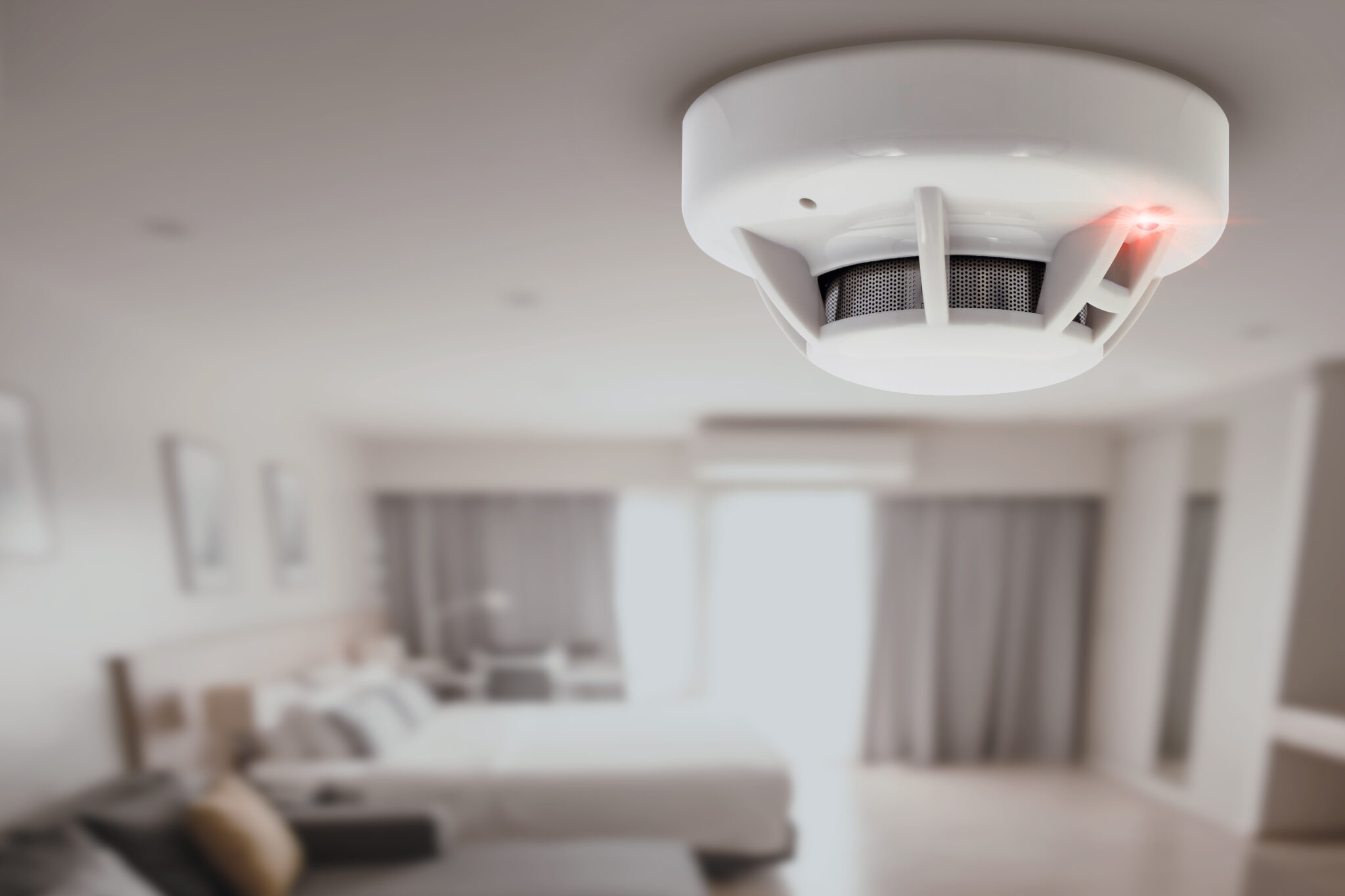

For many individuals, owning a house is an important milestone that provides security and stability while boosting self-esteem. However, with great responsibility come risks that cannot be ignored. Natural disasters or accidents can unexpectedly damage your home, causing costly repairs and displacement if the destruction is severe.
A homeowner’s insurance policy serves as a safety net for unforeseen circumstances related to residential properties. This guide helps you understand which types of insurance are necessary to protect both your home and its contents so you can rest easy knowing you’re covered when it matters most.
Essential Homeowners Insurance Coverage
To safeguard your home, there are several vital insurance policies that you should take into account:
- Dwelling Coverage: This includes your house, encompassing the walls, roof and foundation protection against hazards such as fire damage, vandalism or other natural disasters not covered.
- Personal Property Coverage: The insurance cover offered in this insurance policy ensures protection for your belongings, including furniture within your home and items such as electronics and clothing that are considered “outside” of the house. Additionally, liability coverage is included to address any thefts or damages caused by potential risks left behind.
- Liability Coverage: Liability coverage provides a financial safety net for situations where someone experiences injury on your property or if you cause damage to another person’s belongings. This coverage includes costs associated with legal defence, medical treatment, and compensation for damages awarded.
- Additional Living Expenses (ALE) Coverage: ALE Coverage provides a great advantage in case of natural disasters or covered losses that render your home uninhabitable. It can assist with temporary living expenses like lodging and food as repair work takes place on your property.
Optional Coverages to Consider
Aside from the essential coverages, there are various optional coverages that you may want to contemplate depending on your requirements and geographical location:
- Flood Insurance: Flood insurance is crucial for homeowners residing in flood-prone regions since the property damage caused by floods isn’t typically covered under standard homeowners’ insurance.
- Earthquake Insurance: An earthquake insurance policy offers coverage for your property in areas that are prone to earthquakes. By paying the premium, you can safeguard your possessions and fixed assets from any damage caused by seismic activity.
- Identity Theft Protection: This is a form of coverage that helps cover the costs associated with restoring your identity in case it gets stolen. This protection includes clearing up any damage to your credit history by hiring an attorney, as well as using services for monitoring and restoring your identity.
- Personal Umbrella Liability: These insurance policies offer additional coverage beyond standard home insurance, providing high-net-worth individuals with an added layer of protection against legal action and sizable claims.

Tips for Choosing the Right Home Insurance
Although selecting the appropriate home insurance policy may appear overwhelming, implementing these suggestions can aid in easing the process:
- Understand Your Needs and Risks: Take the necessary steps to comprehend your requirements and potential hazards. Assess how much compensation you would receive in case of a loss as well as any risks associated with your location, so that you can determine which insurance coverage is suitable for you.
- Shop Around and Compare Quotes: Be open-minded and explore your options. Conduct extensive market research, comparing quotes, benefits, and customer feedback from different insurance providers. This will equip you with the necessary knowledge to make a well-informed decision.
- Consider Factors Like Deductible, Coverage Limits, and Claim History: When selecting a policy for your car, it’s important to take into account several factors such as the deductible amount, coverage limits and claim history. To maintain reasonable premium costs, opt for a deductible that works well with the insurer’s complaint history and select coverage limits accordingly to ensure the protection of your vehicle.
- Read the Policy Carefully Before Purchasing: Take the time to carefully review the policy before making a purchase. Be sure to examine all of the details, including terms, conditions, exclusions and policy endorsements so that you fully understand what is covered and what is not.
Reviewing and Updating Your Home Insurance Policy
Finding out what you need is just the beginning of wrapping yourself with a home insurance policy. It’s imperative to continuously monitor and adjust your coverage as you progress through time, ensuring it aligns with changing circumstances. To help guide this process, consider reviewing and updating your policy during these periods:
- Home Renovations or Upgrades: Home renovations or upgrades are prime examples of situations where you may need to revise your coverage limits. For instance, if you opt to renovate your bathroom or add an extra room, the increased value and replacement cost of these modifications would require adjusting your insurance policy accordingly.
- Changes in Personal Belongings: If you acquire valuable items such as jewellery, artwork or electronic appliances, make sure to update your personal property insurance policy for coverage.
- Changes in Family Status: When experiencing changes in family status, such as purchasing a home, getting married or divorced, or having a child join the family, it is important to reassess your insurance needs. Consider adjusting your policy based on these new circumstances and increased financial responsibilities.
- Annual Policy Review: It is recommended that you thoroughly review the policy details, coverage limits, deductibles and other specifics at least once a year. Additionally, conducting annual reviews can help uncover any gaps in coverage or opportunities to save on insurance costs.
Understanding Home Insurance Claims Process
In the unfortunate event that you need to claim your home insurance, it’s important to know what the process involves. This will allow you to stay well-informed and feel confident during this difficult period while minimising any stress or tension. Here is an easy-to-understand guide to what happens when submitting a home insurance claim:
- Report the Incident: To begin the claims process, it is important to promptly contact your insurance provider and report the incident. You should provide details such as date, time, location of loss and a brief description of how it occurred when reporting losses that have taken place.
- Document the Damage: It is recommended to thoroughly document the damage by taking additional photos and videos, as well as creating an inventory of any stolen or damaged items. This will provide evidence for your claim and enable a prompt assessment from the claims adjuster.
- Meet with the Claims Adjuster: When dealing with an insurance company, you will be assigned a claims adjuster responsible for evaluating the extent of damage involved and determining the validity of your claim. It’s important to cooperate fully with them by communicating effectively and providing any requested documentation or information to strengthen your case.
- Receive Claim Settlement: After going through the claim process, which includes damage assessment and verification by a claims adjuster, you will receive your settlement from the insurance company. The amount is capped and calculated using a specific method to provide finality. Make sure to carefully review the settlement for any errors and communicate with your insurer in case of doubts or disagreements.
- Repairs and Replacements: After the commitment has ended, you have the option to rebuild or replace any damaged property. Your insurance company may offer a list of approved contractors and service providers, but it is also possible to find your own. Make sure to keep all receipts and documentation for repairs or replacements as they could be valuable when making claims against other parties.
The primary objective of insurance is to provide coverage not only for your home but also for your belongings, ensuring peace of mind and safeguarding your financial well-being. If you’re struggling with selecting the appropriate insurance policies or seeking expert advice tailored to meet specific requirements, you must seek assistance from an experienced insurance professional.
Insurance.co.za Content Team
We’re a specialist team of insurance and finance copywriters and content producers. The Insurance.co.za Content Team is a flexible and dynamic team. Hence we publish our content under the Insurance.co.za brand name rather than our personal names.
Other posts





